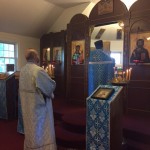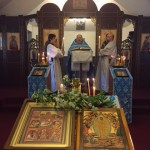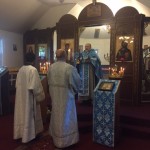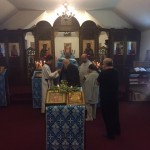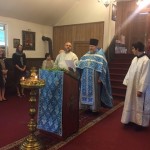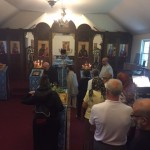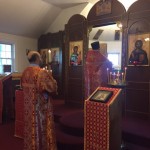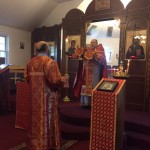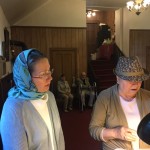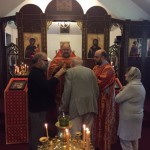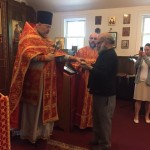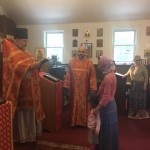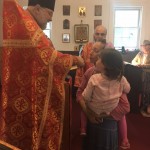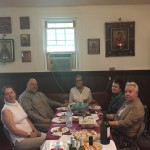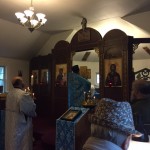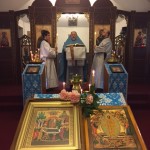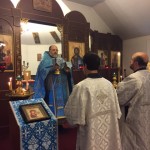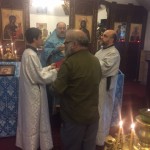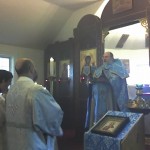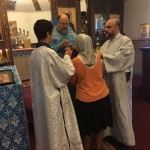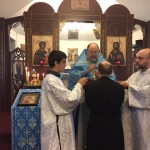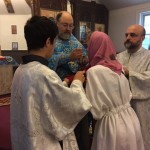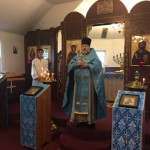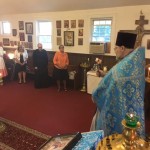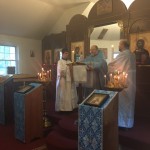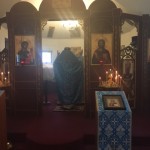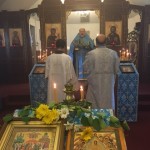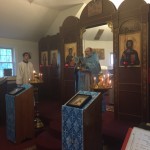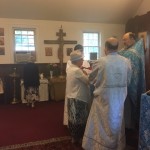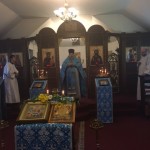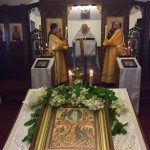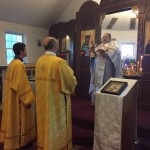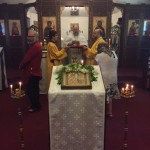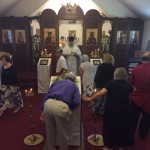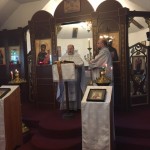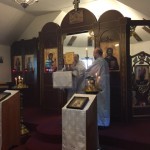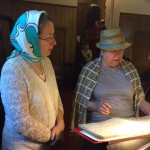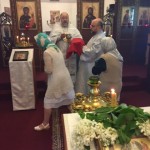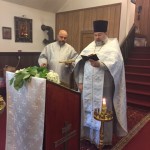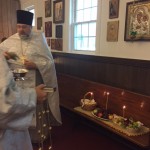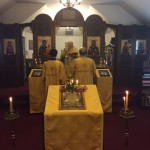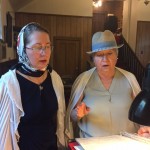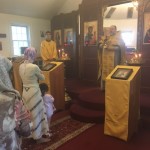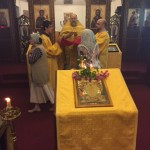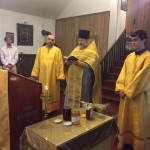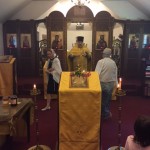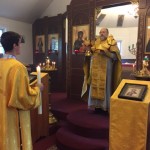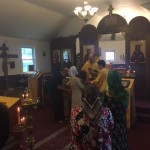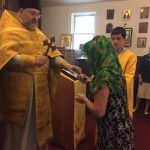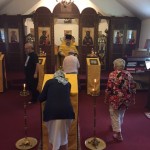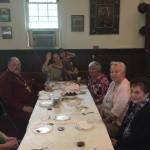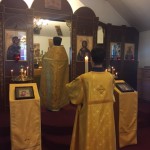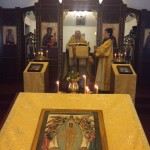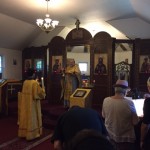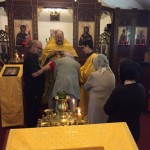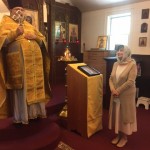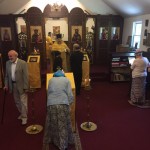On September 24, on the Sunday before Exaltation of the Cross, our Parish also observed feast of the Nativity of the Most Holy Mother of God. Divine Liturgy in our temple was served by our Rector, Archpriest Igor Tarasov. Following the lessons from the Holy Gospel he preached a homily in Russian. An English translation of that homily is as follows:
“Dear brothers and sisters in Christ! Today the Church celebrates Sunday before the feast of the Exaltation of the Holy Cross. And we also celebrate feast of the Nativity of the Most Holy Mother of God which we decided to transfer it to this Sunday. But even if we did not transfer it for today, we would still commemorate that feast because the Church continues to celebrate it for several days. But the Church already prepares us for another great holy day, feast of the Exaltation. Thus today we would have to reflect upon those two important matters: on the birth of the holy Theotokos and on the words of Christ heard in today’s Gospel telling us that “God so loved the world that He gave His onlybegotten Son…” (Jn. 3, 16).”
“The Nativity of the Most Holy Mother of God is the first holy day of the New Church year. “The present Feast is for us the beginning of feasts” – says about it Ven. Andrew of Crete. It is understood because the birth of the One who had to give birth to the Savior of the world should be considered as a beginning of our salvation. “Thy Nativity, o Virgin Theotokos, has proclaimed joy to all the universe” – we sing today in the troparion dedicated to this feast. The troparion goes on and explains that the universe should rejoice in the birth of the Mother of God because from Her the Sun of righteousness, Christ our God, is risen. He broke the ancestral curse and gave the blessing; He destroyed death and granted us life eternal.”
“If we recall the story of the Nativity of the Mother of God, we could observe that Her parents, Joachim and Anna, were advanced in age but were childless. In those times and in the Jewish society it was considered a great misfortune and reproach. It could be viewed as a curse. But the whole human race was under a similar curse, lived in a great misfortune of sin. Although children were born to the people, they had no future of holiness and pleasing God.”
“Sometimes people say that eternal life means our continuation in children. It is true to some extent. Our sons and daughters look like us, behave like us, have our traits. Joachim and Anna thought that they did not have such a continuation. They were first deprived of the hope to have a future in their children. But even people blessed by the offspring could not have the true eternal life. Every generation before the coming of Christ lived under condemnation, lived in the fallen state. Children looked like their parents, behaved like their parents and repeated their parents’ sins and mistakes. Only with the coming of the Divine Savior into the world, only with the incarnation of the Son of God, the human race was given a future to become holy and to join God in the eternal life. Such life was granted, the ancestral curse was broken through Jesus Christ redeeming us. But in order to accomplish that Jesus had to be born as a Man. And His birth was given by the Most Holy Theotokos. She had to come to this world first. And She did, and today we celebrate Her wonderful Nativity.”
“Holy grandparents of God, Joachim and Anna, became blessed. They conceived a child, gave birth to the holy Virgin Mary. In the same way God, in His endless love, blessed the whole humanity and gave His only begotten Son. Humanity was perished, but God wanted it to live. Preparing to celebrate another holy day, feast dedicated to the Precious Cross, and observing Sunday preceding that solemnity, let us understand how God acted for us. His love freed us from the curse of our ancestors. God gave His only Son for us to grant us life, life everlasting. Instead of childlessness of Joachim and Anna He gave them a child who bore Christ into the world. They were blessed with life, with the continuation of their family. And all of us became blessed with life. Instead of absence of hope God gave the future. Instead of death He granted life.”
Our Cantor, Olga Roussanow performed beautiful hymns of the feast of the Nativity of the Theotokos during preparation for Holy Communion.
After the dismissal of the Liturgy the Rector and altar servers came out of the sanctuary and performed the rite of glorification in front of the festal icon, singing the troparion, kontakion and magnification of the feast.
The Rector also preached a short sermon in English addressing the main thoughts of his Russian homily.
Our celebration continued at the trapeza table where Rector and parishioners enjoyed delicious meals and a nice company.

